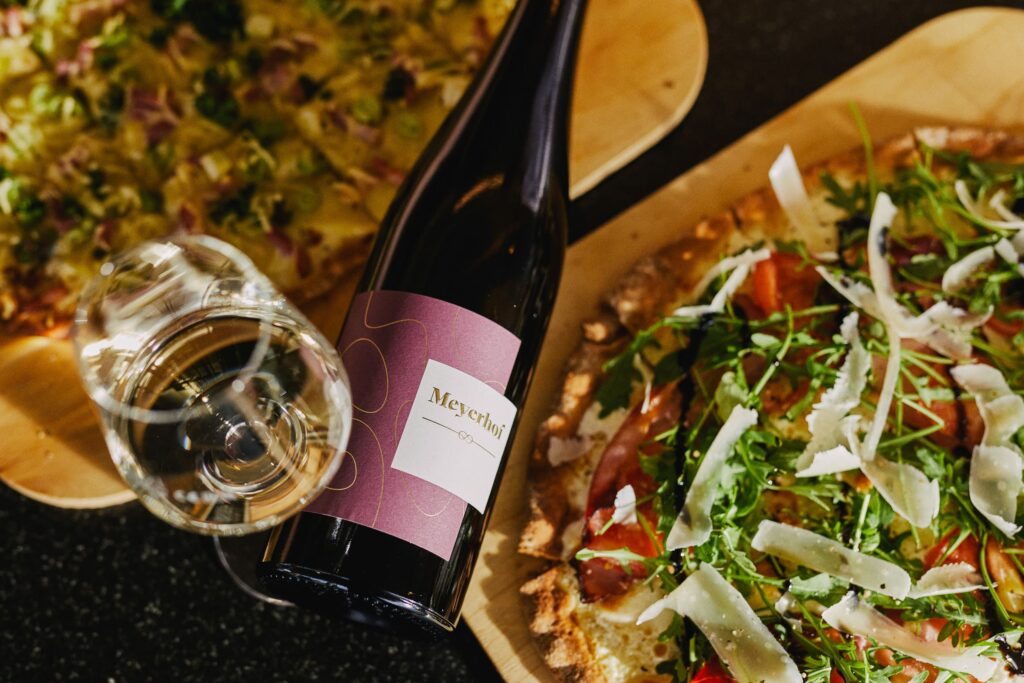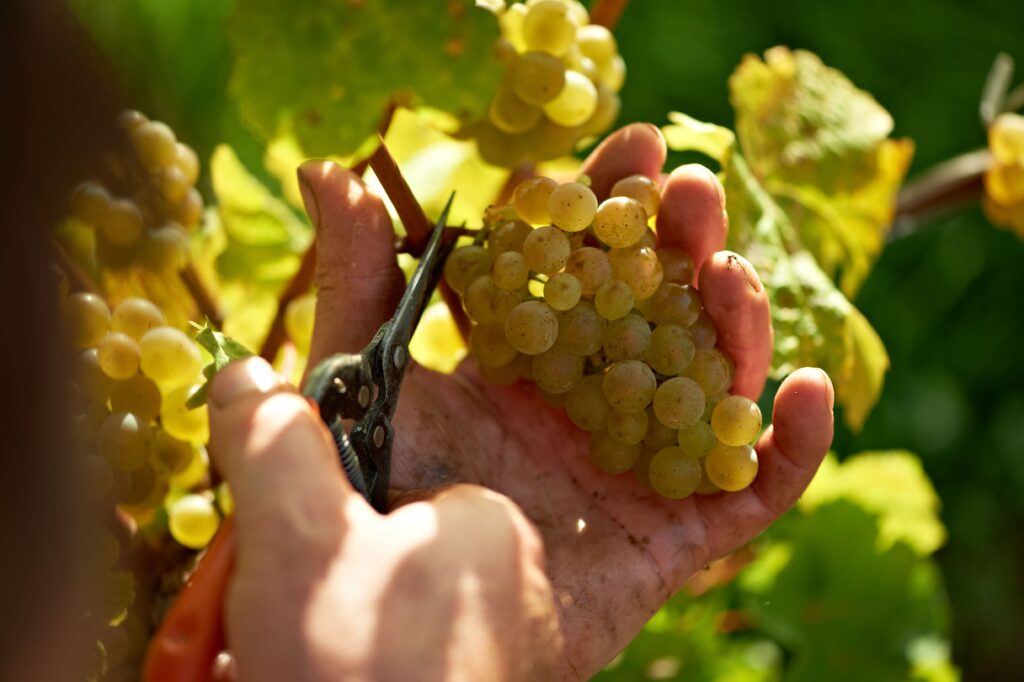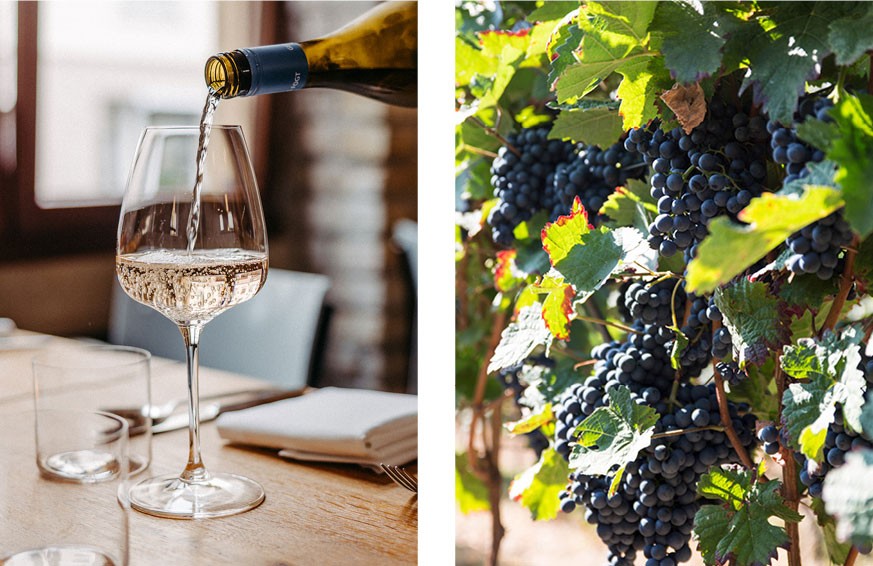Buying wine in the supermarket? I have to admit, so far I've only done this on vacation abroad. In my private cellar, I usually have wines that I have bought directly from winegrowers or received as gifts from friends. And in more than sufficient quantities. So there has simply been no need to pack a wine when I go shopping.
On the other hand, I am curious, so I occasionally stroll through the rows of shelves in the wine section of the supermarket. Because firstly, I'm interested in how much effort a market puts into its wine selection and also which wines you can find there. And of course, as a Rhine-Hessian, I am particularly interested in the wines of my home region.
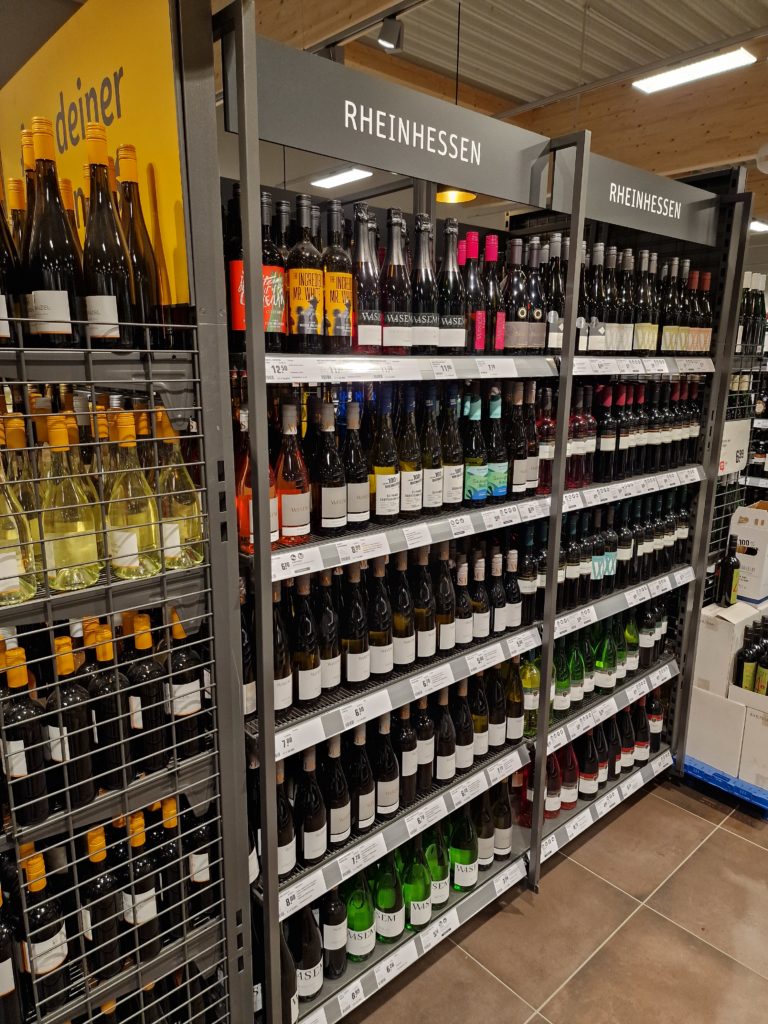
After all, 66 percent of all wines in Germany are bought in supermarkets and discount stores. Not all wine lovers are lucky enough to live in the middle of a wine-growing region and have the winemaker practically on their doorstep. What's more, the choice in a supermarket is huge. Wines from all over the world are on the shelves. By the way: even if the winegrowers from the Palatinate have caught up a little: Most German wines in the supermarket come from Rheinhessen! During my forays through the wine shelves, there were plenty of exciting wines to be found.
It is obvious that a supermarket orders quite a few bottles of a wine, after all, the wine buyers in Hamburg want to be able to buy the good wine just as much as those in Munich or Leipzig. Therefore, many wines in supermarkets naturally come from large wineries. Many of these wineries now have very different and often very sophisticated and high-quality lines that are specially developed and produced for supermarkets and the like. It is definitely worth taking a closer look.
ROTWILD - Rheinhessen indulgence from the industry leader
Rheinhessen has played a major role in the product range of Germany's largest winery, and not just since Peter Mertes took over the Welter winery in Engelstadt, Rheinhessen, in 2020. Founded in 1924 by winemaker Peter Mertes in Minheim on the Moselle, the company has been dedicated to wines from Rheinhessen since the 1950s. The Rotwild brand wines in particular come from Rheinhessen - and they are very successful. Whether Riesling, Silvaner or Pinot Blanc, you will find a fairly extensive selection of wines in the distinctive bottles emblazoned with an imposing stag's head. The specialty, however, is the Dornfelder. In Germany's largest barrique cellar, the Rotwild cellar in Bernkastel-Kues, which gives the wine its name, only Dornfelder is stored for the Rotwild wines. It is available for all possible taste preferences, dry, semi-dry or sweet, as a red wine or as a rosé. I found the Rotwild Schoko, a chocolate-flavored red wine, particularly exciting. There is also a white wine version with vanilla.
Incidentally, the winery has another superlative to offer: According to its own information, it is the largest organic wine supplier in Germany. Not only do many suppliers produce wine according to organic guidelines, but some of the winery's own vineyards are also cultivated organically. They also strive to work in a way that conserves resources: On the roof of the winery, for example, there are photovoltaic systems covering an area of 25,000 square meters and there are cisterns in the floors of the tank cellars. The water is used for natural cooling.

HORIZN29 - Sustainable Rhine-Hessian
Speaking of sustainability: the Andreas Oster winery has initiated a special project. It is also based on the Moselle, but is also heavily involved in Rheinhessen. The new wine line is called HORIZN29 and the website states: "Rheinhessen is one of the most exciting wine regions in Germany today ...". We won't argue with that. The 29 stands for 29 sustainable principles according to which the wines are produced. These can also be found on the homepage. "We use natural resources sustainably," it says, for example. Or: "Sustainability means quality - that's why all our wines are subjected to strict sensory tests and quality checks." And under the heading "Appreciative employer": "Everyone is treated equally, no one is discriminated against on the basis of gender, age, skin color or origin. This also applies to pay." All the wines in the range come from Rheinhessen and are produced by family-run wineries in Rheinhessen. Naturally, they have to meet the company's own sustainability standards. And the focus is on the origin of Rheinhessen. In addition to the classic varieties from Riesling to Sauvignon blanc, there is also a particularly sustainable Cabernet blanc, i.e. a PIWI wine - a wine made from a fungus-resistant grape variety.
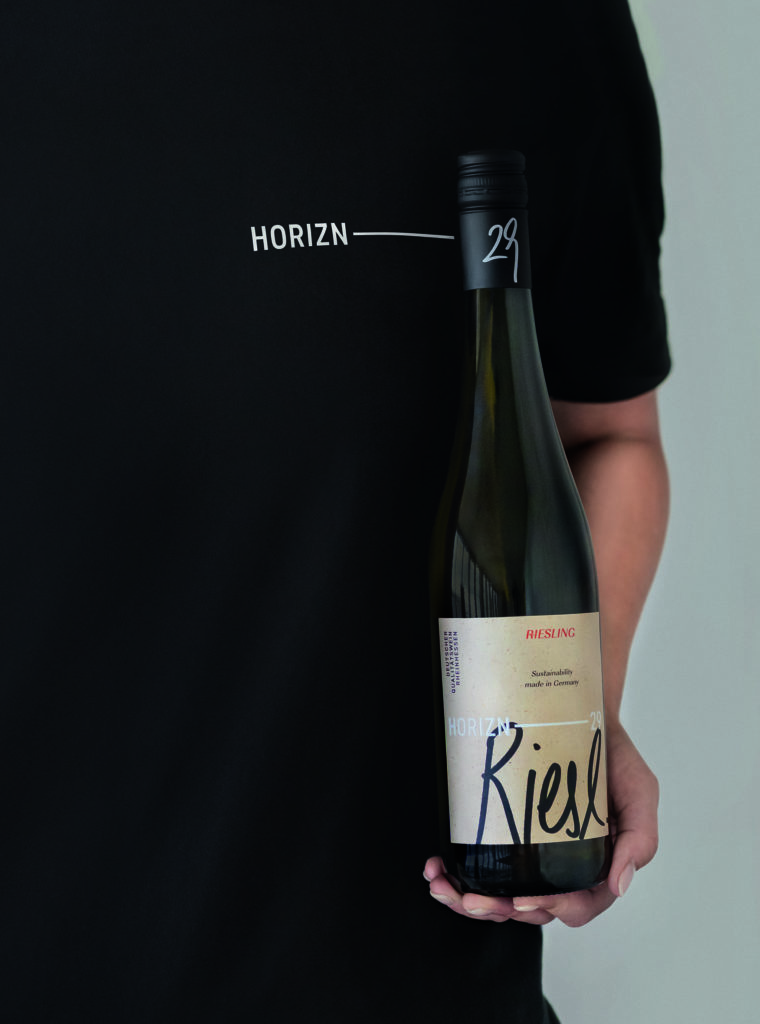
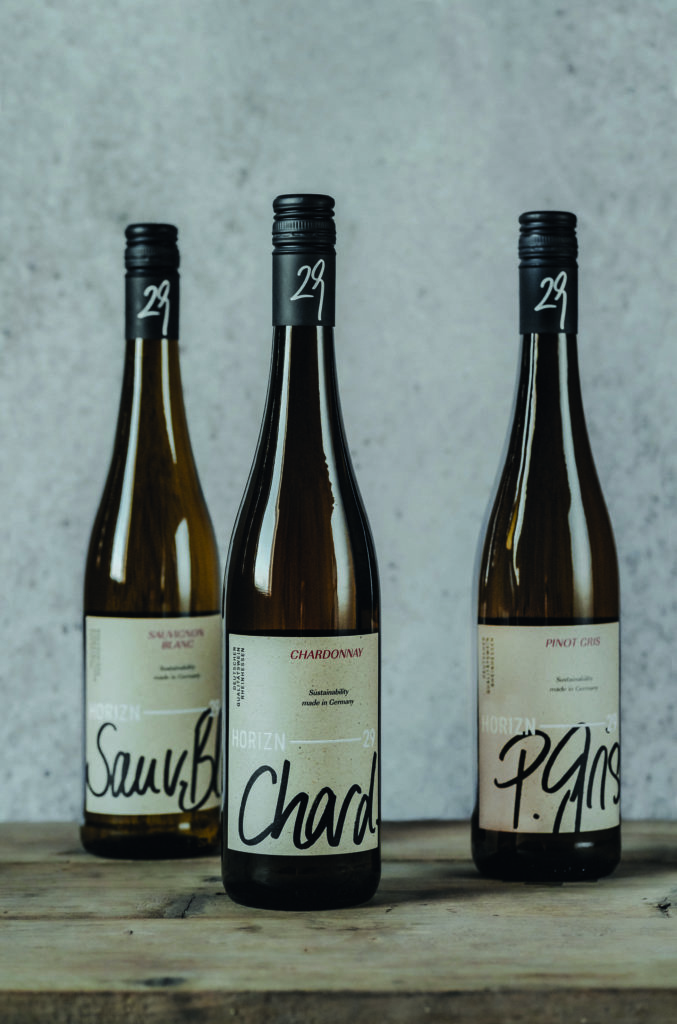
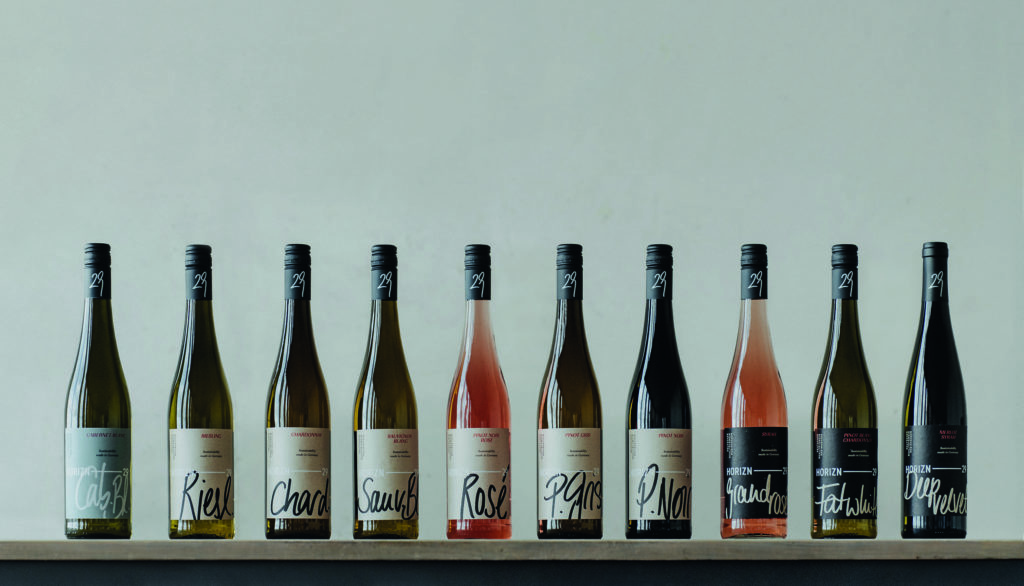
Even more Rheinhessen fans
It's not just Mosel wineries that love Rheinhessen - one of Germany's best-known Riesling addresses, Weinhaus Robert Weil in Kiedrich, has now put out feelers across the Rhine and launched a remarkable range of Rheinhessen Burgundies with its Robert Weil Junior line. Initially exclusively for EDEKA, they are now also available to buy elsewhere. Together with the Trautwein winery in Lonsheim, Rheinhessen, an entire line of Burgundy wines was developed: three white, one rosé and one red. While Pinot Blanc and Pinot Gris are vinified entirely without the use of wood, the Chardonnay is a little more profound: with subtle wood, it takes on a creamy quality. Pinot Noir is also matured in wood.
The wines with the distinctive lettering stand out on the wine shelf among all the other bottles. "In the supermarket, the wine label is probably the most important selling point. After all, you have to draw conclusions about the inside from the outside," explains Dominique Pavlitschek, aka Fräulein Wein. The wine expert should know, after all she helped set up the online wine shop weinfreunde.de for the REWE Group and knows all about supermarket wines.
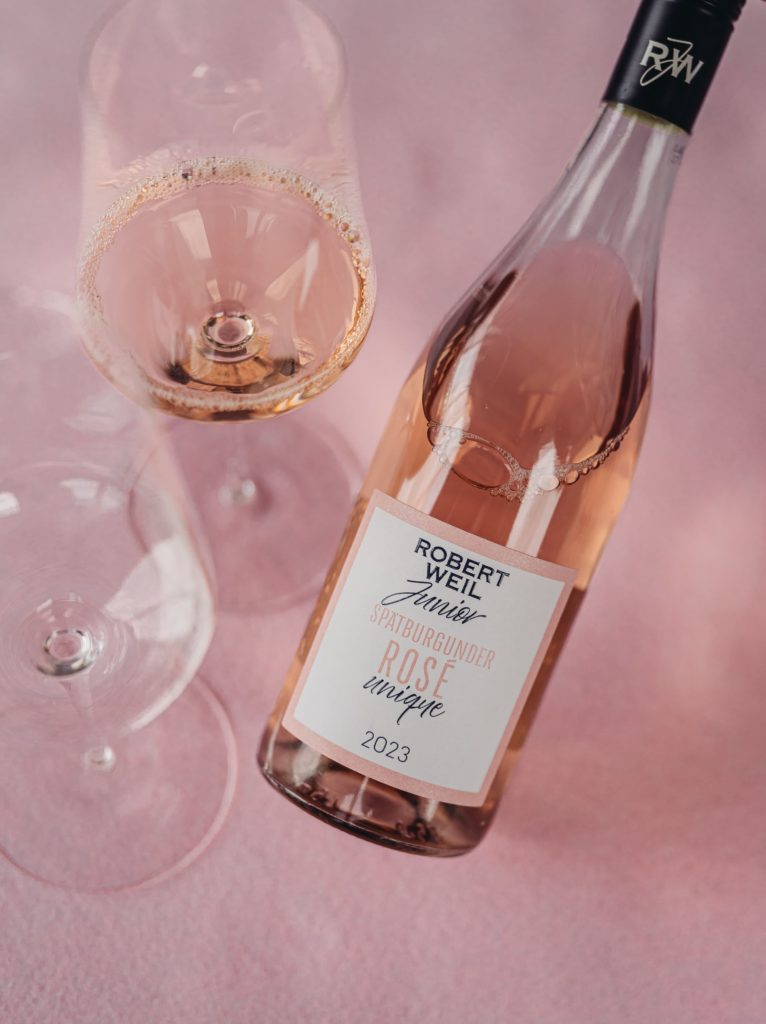
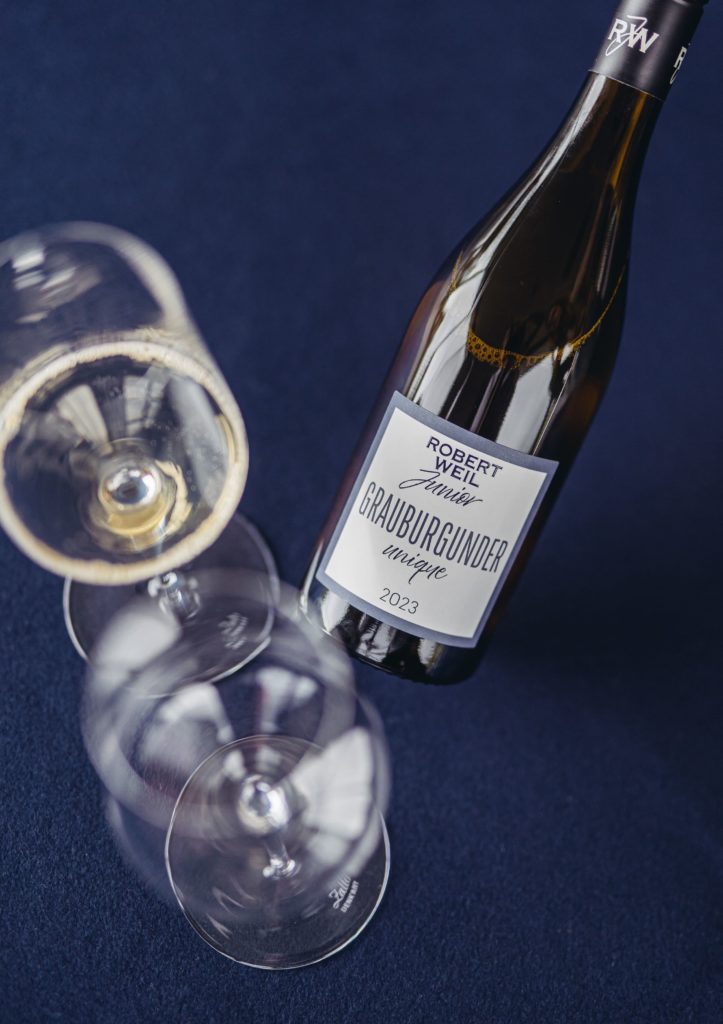
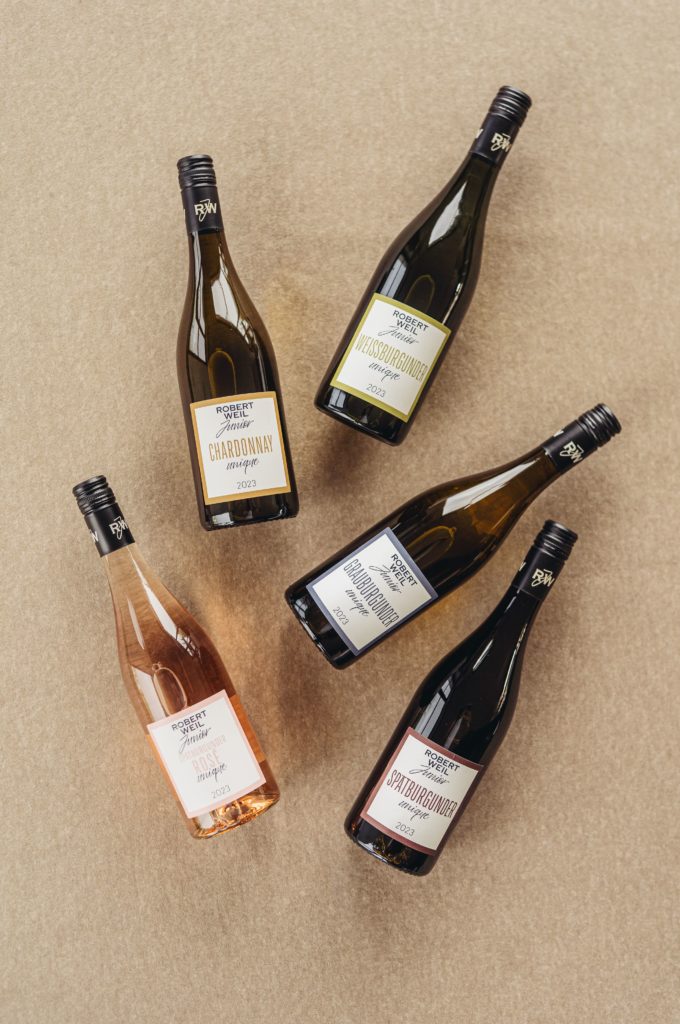
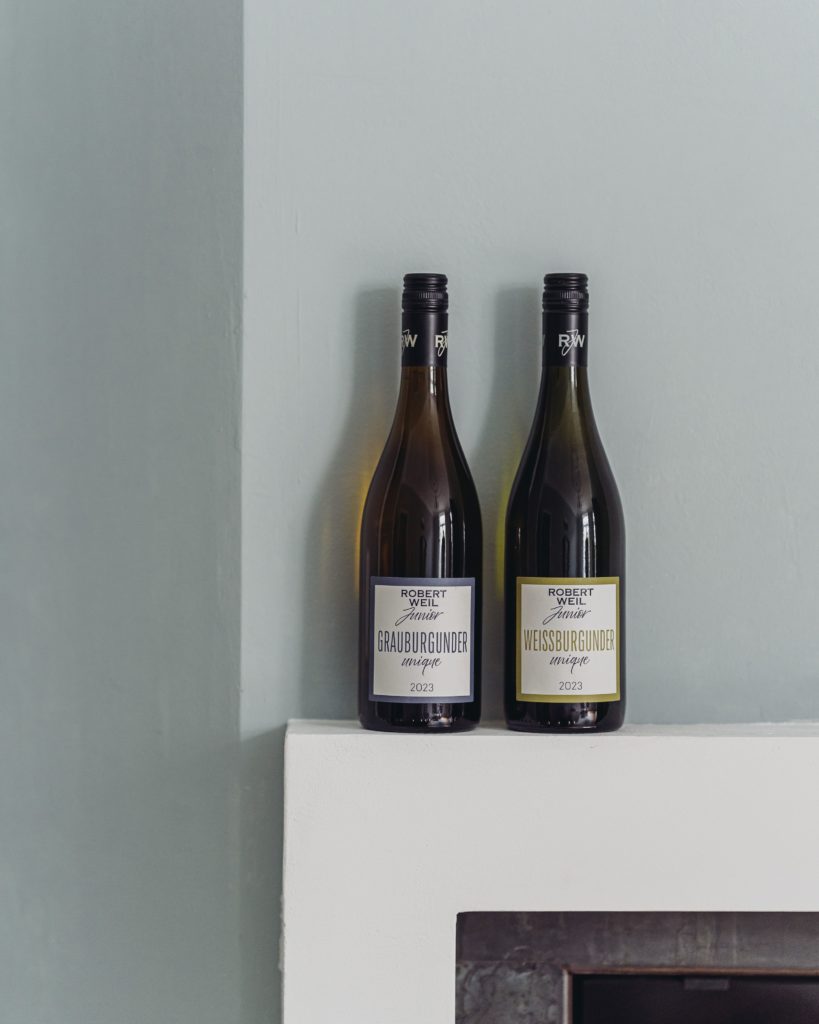
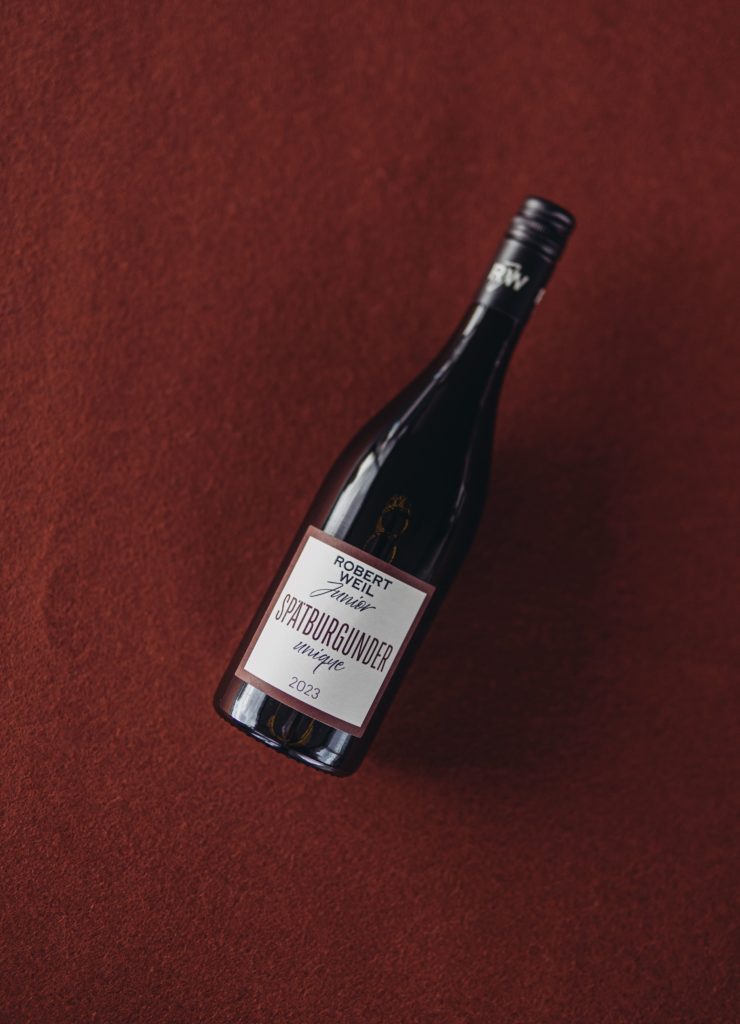
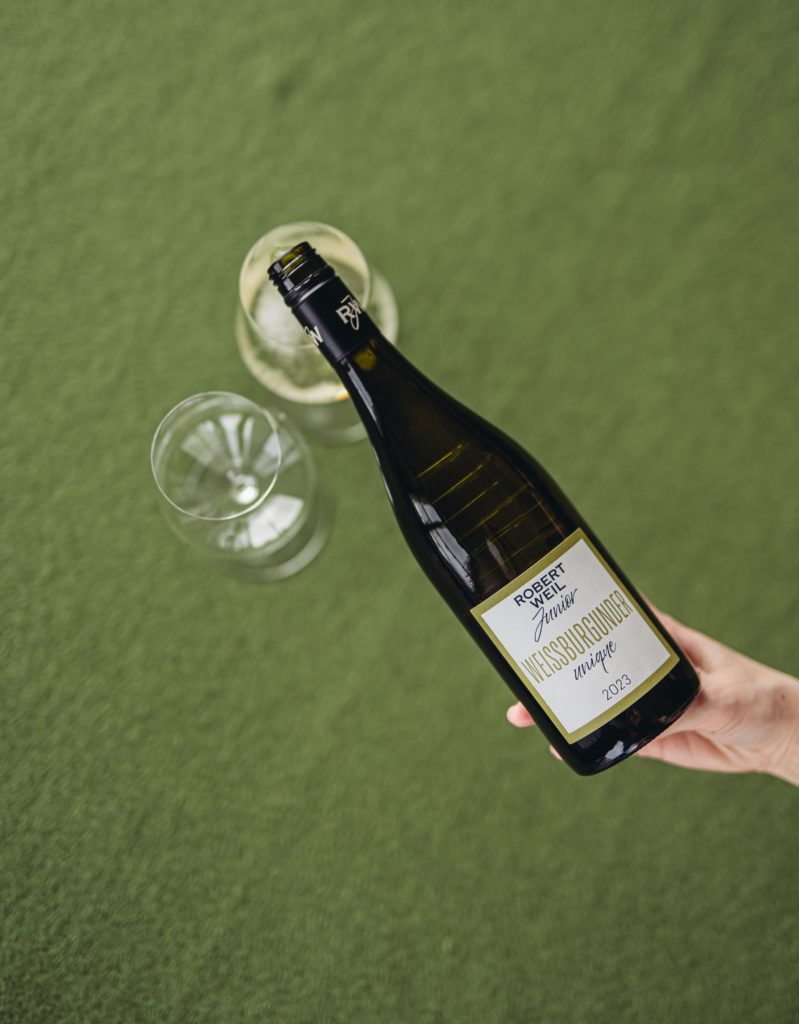
50 shades of ...
... gray? The plain gray label with the eye-catching lettering is definitely an eye-catcher. Behind it is a Pinot Gris that can be found on the wine shelves at EDEKA and Netto. There is a special reason for this. The grey comes from Bingen, more precisely from the Rheinberg winery, which has been part of the EDEKA headquarters since 1967 and markets its wines exclusively through the relevant stores. Incidentally, this makes the EDEKA group the only food retailer in Germany with its own winery. However, this does not mean that you can sit back and relax in the cellars of the Rheinberg winery because the wines will be sold to EDEKA anyway. Far from it, every year the wines have to officially take part in the tenders of the EDEKA association. That's why the focus is on quality - despite the quantity.
The grey is definitely a wine that can easily be described as everybody's darling: fruity, juicy, without chichi, simply delicious. Various wine magazines, for example, also recommend it. But beware, other wineries have discovered the name grey for their Pinot Gris, so look carefully when buying!

There is a rumble
Rheinhessen without Müller-Thurgau? Unimaginable! After all, almost 15 percent of the vineyards in Rheinhessen are planted with this variety. With its semi-dry Müller-Thurgau, Rotkäppchen-Kellerei is therefore bringing a real classic to the wine shelves of supermarkets. However, Rotkäppchen does not have its origins in Rheinhessen, but in Saxony-Anhalt. More precisely, in the Saale-Unstrut wine-growing region and guess how much Müller-Thurgau is grown there? That's right, 15 percent. The Rivaner, as it is also known, thus takes first place in Saxony's grape variety index. So they can do Müller-Thurgau at Rotkäppchen. The company is still based in Freyburg, but Rotkäppchen wines are vinified and bottled in Rheinhessen, with the exception of portion bottles and non-alcoholic products. In addition to Müller-Thurgau, there are many other varietal wines from Rheinhessen under the same label: a dry Pinot Noir, a Pinot Gris and a semi-dry Dornfelder. The whole range of Rheinhessen wine diversity.

And how do I decide which wine to buy in the supermarket? Dominique Pavlitschek knows the answer: "First decide on a budget and the region." What a question, Rheinhessen of course. "Now the grape variety, then you're pretty much on the safe side." Well then - have fun next time you're shopping in the supermarket.
Infobox:
Our video gives you a good insight into the background of Rheinhessen wines in the supermarket.

By loading the video, you accept YouTube's privacy policy.
Learn more
More information is also available on our website.

